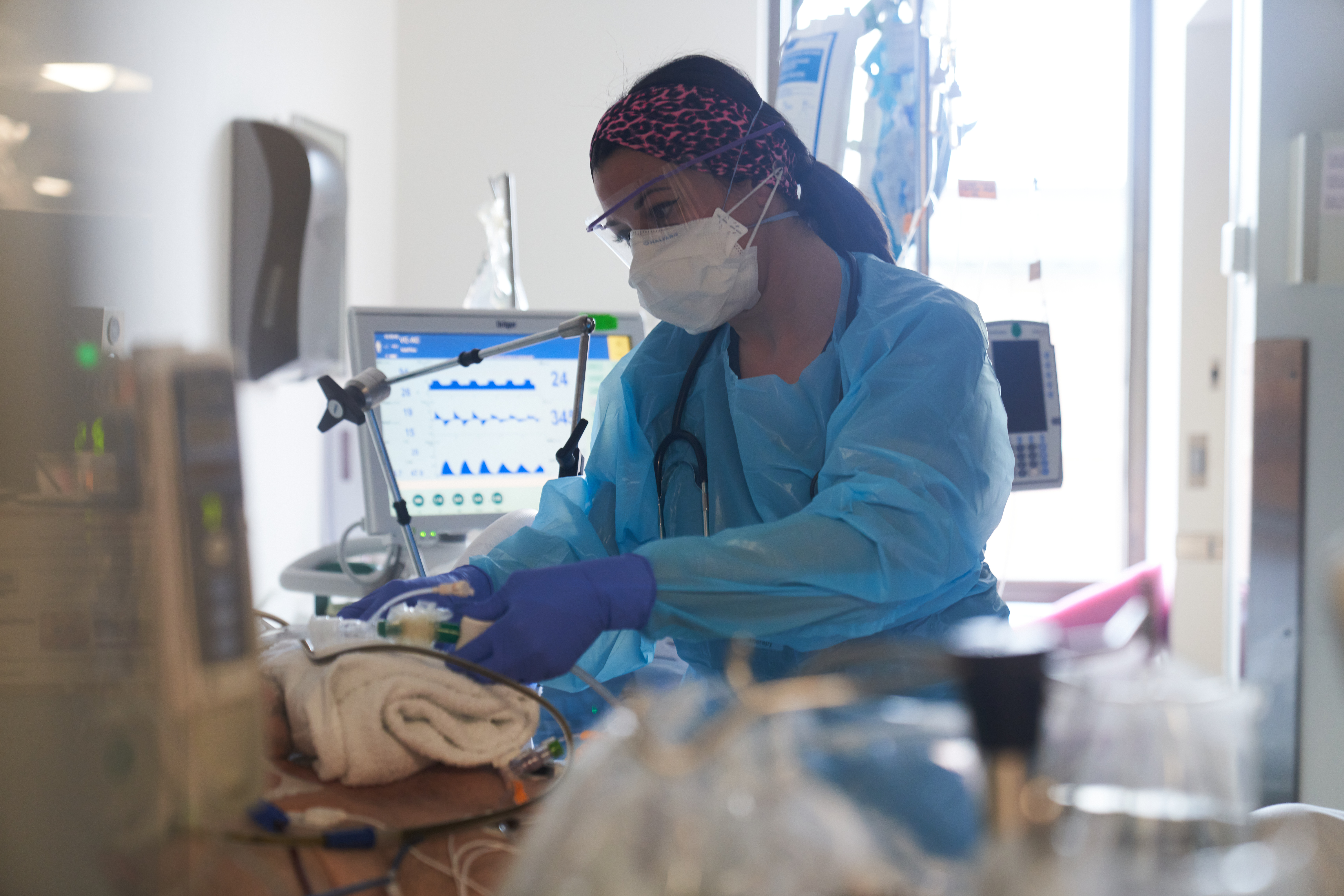A new program in Massachusetts will give more COVID-19 testing flexibility and get rapid antigen tests in the hands of early education centers, part of an initiative to make testing widely available and keep staff and students in school and child care programs, Gov. Charlie Baker announced Wednesday.
The administration on Tuesday announced updated school COVID-19 testing options, including providing participating students and staff with at-home rapid tests weekly to help keep in-person learning going.
WATCH ANYTIME FOR FREE
>Stream NBC10 Boston news for free, 24/7, wherever you are. |
Testing for Child Care is a similar program, but aimed at early education, that allows staff and children 2 years and older who were exposed to someone with COVID-19 to test daily for five consecutive days with rapid COVID tests. As long as the tests are negative, they can continue to attend work or receive care.
The program also provides early education and child care centers with rapid COVID-19 tests for free, as well as resources and training options. The distribution of those tests is expected to begin the week of January 31. Programs can sign up through the nonprofit Neighborhood Villages, which has been partnering with the Department of Early Education and Care to give child care centers access to testing options.
Get updates on what's happening in Boston to your inbox. Sign up for our >News Headlines newsletter.
"This comprehensive testing program is designed to ensure children can safely continue learning and receiving quality care while parents are working," Baker said in a statement before the formal announcement Wednesday. "Child care is a key piece of the infrastructure supporting the Commonwealth's economy, and this testing program will help to eliminate one of the challenges parents and employers face every day."
COVID Testing Options for Early Education Centers
The program offers facilities to use multiple testing options -- not just the rapid tests. Centers can now participate in one of three options -- rapid cohort testing, symptomatic rapid antigen testing, or the weekly pooled PCR testing which was already an option.
Rapid cohort testing involves testing any staff and children over 2 years old who were directly exposed to someone who tests positive for COVID-19. This option allows programs to test the cohorts without requiring people to quarantine.
Symptomatic rapid antigen testing involves testing staff and children over 2 who show any possible COVID-19 testing. It allows programs to quickly find and isolate positive cases, or confirm negative test results to keep kids in care.
Finally, weekly pooled testing involves PCR testing for all consenting staff and kids over three years old.
Programs can opt into one or all of the testing options.
Officials noted that the program is the first of its kind in the country.
Sign up for our Breaking newsletter to get the most urgent news stories in your inbox.
COVID Testing Options for Schools
Beginning this week, the Department of Elementary and Secondary Education and the Department of Public Health said schools will be able to sign up to receive at-home rapid antigen tests for weekly use by participating students and staff. These schools will discontinue contact tracing and so-called "Test and Stay" program to allow school health staff to spend more time identifying symptomatic individuals and focusing on other aspects of COVID management.
In order to take part, the state said schools must continue to participate in symptomatic and/or pooled testing. Schools will be able to start opting in to the program this week for staff and will receive tests next week. Schools will receive tests for students whose families opt in during the week of Jan. 31.
"The current state of the pandemic requires that we adapt our tactics to meet the times. This new testing program is just the latest way we think we can help keep kids in school," Baker said Tuesday, while also reminding everyone that getting vaccinated "is the best thing you can do to protect yourself, our educators and our kids."
The at-home tests will be shipped directly to school districts for distribution and are packaged in kits containing two tests apiece. Students and staff who participate will receive one kit every two weeks to test themselves. Families will need to inform their school if they want at-home rapid antigen tests sent home with students.
Anyone who tests positive at home will be asked to inform their school of the result. Schools will report positive cases to DESE as part of their regular, weekly COVID reporting.
The administration said the tests will come from the supply of 26 million at-home rapid antigen tests Baker announced last week had been ordered from iHealth to be delivered over the next three months.
More on COVID in Mass.
It's a sigh of relief for working parents. The governor says the goal is to keep entire classrooms from having to quarantine, but the tests will be used strategically; the tests will only be used for those who are close contacts or symptomatic, but parents say it will still be a lot better than having to call out of work and scramble to get their kids tested.
"I usually put her in front of the TV for most of the days," said Stephanie Lovely, who has a child at home from daycare with COVID-19.
Stuck at home in Foxboro, Lovely will tell you that it's tough to have a toddler in quarantine, especially because this is her daughter Emily's second time testing positive for COVID.
"She was sicker this time than last time but yeah she has COVID again," Lovely said of her daughter.
Both times, Emily tested positive after a case was first reporter at her daycare. Her class was shutdown for days so the kids could all get tested, but Lovely says that was easier said than done.
"For me it was a frantic, you cant even buy these tests anywhere," she said.
And that's why Lovely says this announcement from Baker is a game changer.
While this Massachusetts family is counting down the days until quarantine is over, they're hopeful this program will make it a lot better if there's a next time.
"Not having to run around like a crazy person when you're wondering if your kid has COVID would be kinda nice," Lovely said. "Just having one easier option is going to be nice."
It's also welcome news for Brookline mom Courtney Hanna.
"I think rapid tests would be a great idea to keep everybody safe keep the kids safe because they're not vaccinated yet," Hanna said.
The governor says these tests should be available in about two weeks; 7,700 child care centers are eligible to receive them.



